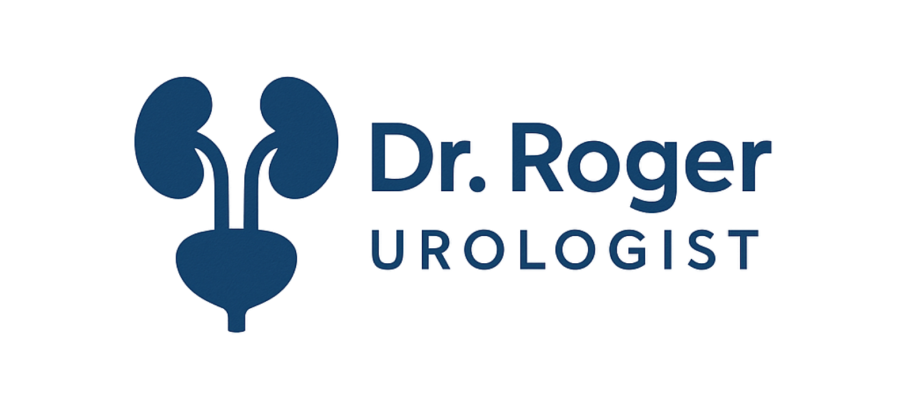urinary problems treatment in Kuala Lumpur
Caring for Your Bladder and Urinary Health with Compassion and Clarity
Whether you’re living with incontinence, frequent urination and urinary tract infections, painful urination, or difficulty passing urine, you’re not alone. Dr. Roger provides calm, respectful care to help you find comfort and confidence again — right here in Prince Court Medical Centre, Kuala Lumpur.
Ready to talk about your symptoms?
Dr. Roger is available at Prince Court Medical Centre to help you find clarity and comfort.
Don’t hesitate to reach out — we’re here to support your next steps.
Book a Consultation
📞 Call +603 2160 0000
📱 WhatsApp: +6012 999 7262
- PCMC Online Appointment Booking Form here
Bladder and urinary symptoms can affect daily comfort, confidence, and overall quality of life. Whether you’re experiencing urgency, leakage, discomfort when passing urine, or recurring infections, many of these issues can be managed with the right care.
This section outlines the support available for men, women, and children with bladder or urinary concerns — from common urinary tract infections to more complex conditions like bladder dysfunction or pelvic pain. These services are provided by Dr. Roger, consultant urologist in Kuala Lumpur, with a focus on respectful, patient-centric treatment.
Common Conditions Managed
- Recurrent urinary tract infections (UTIs)
- Overactive bladder (OAB)
- Urinary incontinence or leakage
- Painful bladder syndrome (interstitial cystitis)
- Urinary retention (inability to empty bladder fully)
- Blood in urine (haematuria)
- Neurogenic bladder (nerve-related bladder dysfunction)
- Bladder growths, inflammation, or suspected cancer
- Catheter-related issues or long-term bladder management
Key Services Offered
Dr. Roger offers a range of bladder and urinary health services in Kuala Lumpur to support patients experiencing incontinence, urinary infections, painful urination, or retention issues. These diagnostic and treatment options are designed to better understand your symptoms and guide the most appropriate care — from urine tests and bladder scans to flow studies and cystoscopy procedures.
Urine Tests & Microscopy (UFEME, Culture)
Simple lab tests to detect signs of infection, inflammation, or blood in the urine. Often the first step in evaluating urinary symptoms.
Bladder Ultrasound (Post-Void Residual Scan)
A quick, painless scan to measure how much urine remains in the bladder after voiding — useful in diagnosing urinary retention or incomplete emptying.
Uroflowmetry (Urine Flow Test)
Measures the speed and pattern of urine flow to evaluate for blockage or weak bladder function. Non-invasive and done in clinic.
Flexible Cystoscopy
A thin scope is used to examine the inside of the bladder and urethra under local anaesthetic. Helps diagnose infections, bleeding, or bladder abnormalities.
Cystoscopy with Biopsy or TURBT
Performed under anaesthesia to remove or biopsy suspicious bladder lesions — often used when blood is seen in the urine or cancer is suspected.
Catheter Insertion & Exchange
Safe and sterile placement or replacement of urinary catheters for patients with retention, neurogenic bladder, or post-operative needs.
Bladder Pain Syndrome Management
Personalised care for patients with chronic bladder discomfort or urgency, including bladder instillation therapy, dietary advice, and medications.
Incontinence Evaluation & Urodynamic Study (if needed)
Detailed testing (when needed) to assess bladder pressure, control, and sphincter coordination in patients with leakage or voiding difficulties.
If you’re experiencing urinary symptoms, you’re not alone. Many patients have similar questions about tests, procedures, and what to expect. Below are answers to some common concerns related to bladder and urinary health.
Bladder & Urinary Health
– Frequently Asked Questions
1. What are signs of a bladder infection?
Burning during urination, urgency, increased frequency, lower abdominal discomfort, and cloudy or smelly urine may all be signs of a urinary tract infection.
2. What is uroflowmetry?
It’s a non-invasive test where you urinate into a special device to measure how fast and how much you pass. It helps assess bladder outlet obstruction or weak bladder function.
3. When is cystoscopy recommended?
Cystoscopy allows direct visualisation of the bladder and urethra. It may be recommended for persistent UTIs, blood in the urine, urinary retention, or suspected bladder cancer.
4. Is cystoscopy painful?
Flexible cystoscopy is usually done under local anaesthetic gel and is well tolerated. Mild discomfort or a short-term burning sensation may occur afterward.
5. What causes urinary incontinence?
It may be due to overactive bladder, weak pelvic floor muscles, prostate problems (in men), or nerve-related causes. Evaluation helps guide the right treatment.
6. Can urinary retention be managed without permanent catheterisation?
Yes. In many cases, reversible causes can be treated. In other cases, intermittent catheterisation or minimally invasive options may be used to reduce long-term complications.
Consultations for bladder and urinary concerns is available with Dr. Roger at Prince Court Medical Centre, Kuala Lumpur.
📞 Call +603 2160 0000 | 📱 WhatsApp +6012 999 7262 | 💻 use this appointment form to schedule an appointment.




